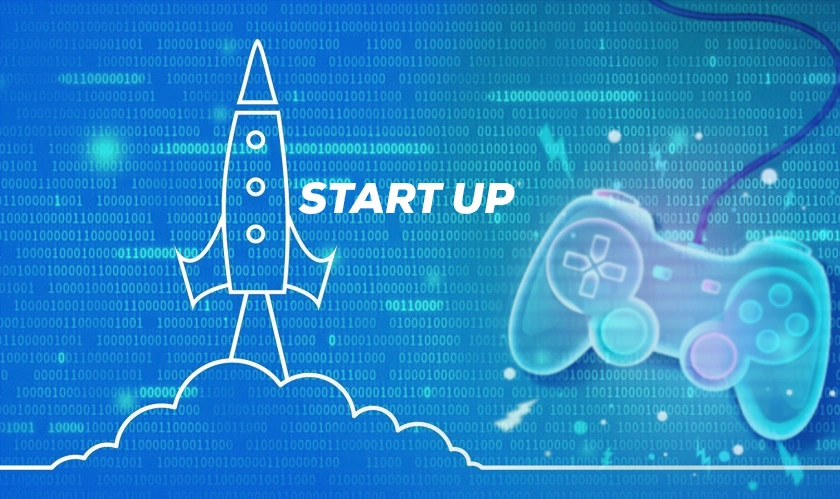Home Industry Startups How Startups are Redefining Ex...
Startups

CIO Bulletin
04 March, 2024
The gaming industry has evolved tremendously over the years, with graphic design, game mechanics, and player expectations adapting to new trends and emerging technologies. However, the emergence of startup game developers has sparked a revolution in the industry, with new agile innovation strategies, non-traditional budgeting methods, alternative monetization solutions, and community-centric approaches reshaping the AAA game development landscape.
Agile Innovation: Startup Strategies Transforming Game Design Processes
Game development startups are disrupting traditional game design processes by using agile innovation methods. They emphasize creative development and rapid iteration cycles that allow developers to test and adapt game design elements in a collaborative and iterative approach. Unlike traditional game development, startups are flexible, adaptive, and focused on quick results. With a modern approach to game UX design, which you can learn more about at https://kevurugames.com/blog/game-ux-design-why-ux-is-important-in-3d-video-game-development/, they quickly identify and respond to user feedback, allowing for continuous improvement throughout the development process. The agility of startups allows them to respond to market trends more quickly, innovate faster, and explore different genres to create completely original experiences. As a result, AAA games developed by startups are characterized by innovation, engagement, and inclusivity.
Lean and Mean: How Startups Challenge Traditional Budgeting in Game Development
Startups in game development are challenging traditional budgeting methods by adopting a lean and mean approach. Unlike established AAA game developers who often have larger teams and budgets, startups have limited resources and have to be resourceful in their spending. This constraint, however, does not hinder their creative potential. Instead, it inspires startups to prioritize core development essentials, allocate budgets smartly, and find innovative ways to achieve top-grade results while conserving resources. Startups focus on efficient development processes, cutting out unnecessary expenses, and leveraging cost-effective tools and technologies. By embracing this lean and mean mentality, startups in game development can deliver high-quality games without the need for extravagant budgets, challenging the notion that large budgets are essential for success in the industry.
Startups Pushing Boundaries in Game Engine Development
Startups in the game development industry are pushing the boundaries of game engine development, with https://kevurugames.com/blog/top-games-made-in-unreal-engine/ being a prime example. This reliable and innovative engine has become a popular choice for startups due to its powerful features and flexibility. Startups are using Unreal Engine to create visually stunning games that rival those from major studios. Advanced rendering capabilities, dynamic lighting, and physics engine systems allow startups to achieve impressive graphics and immersive gameplay.
Moreover, startups use an intuitive visual scripting system to quickly prototype and iterate game mechanics. This allows small teams with limited resources to bring their ideas to life more efficiently and at a lower cost.
Thanks to modern approaches to game development, startups can compete with large game studios by offering high-quality visuals, exciting gameplay mechanics, and immersive experiences. These startups are pushing the boundaries of what is possible in game engine development and shaping the future of the gaming industry.
Community-Centric Approaches: Startups Building Engaged Fanbases from Scratch
Startups in game development are taking a community-centric approach to building engaged fanbases from scratch. Recognizing the importance of fostering a strong and loyal community, startups prioritize active and meaningful interactions with players throughout the development process. They create spaces for players to provide feedback, voice their opinions, and actively participate in shaping the game's direction. This level of transparency and involvement not only helps startups gather valuable insights and iterate on game design but also builds a sense of ownership and investment among the community.
Startups also leverage social media platforms, forums, and live streaming to connect directly with players, share updates, and generate hype around their upcoming games. They understand that building a passionate community is not just about promoting their products but also about nurturing relationships and establishing a genuine connection with players.
Conclusion
Startups in gaming development continue to revamp the game landscape with a focus on innovation, agility, and an unwavering commitment to providing players with unique and enjoyable gaming experiences. The blending of agile innovation techniques, lean budgeting methods, alternative funding, and community-centric approaches have positioned startups as game-changers with the ability to redefine the industry's expectations in game development. As the industry continues to evolve, startups in gaming development will continue to play a significant role in changing the game development process and delivering elevated game experiences in the current and future gaming community.







